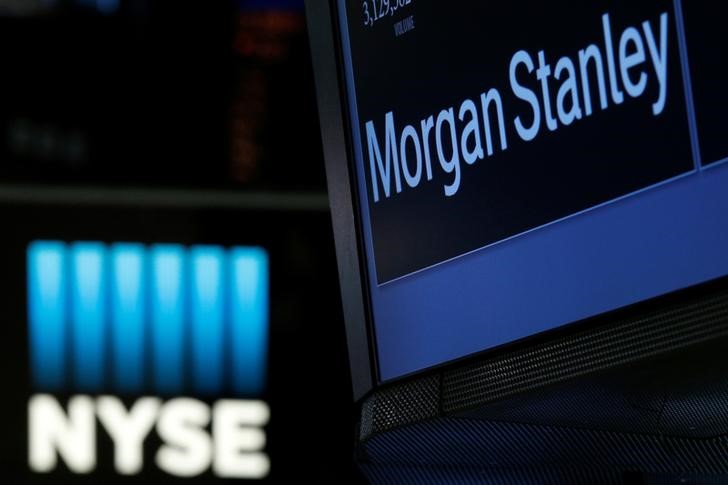This post was originally published on this site
https://i-invdn-com.investing.com/trkd-images/LYNXMPEJ4K05H_L.jpg
(Reuters) – The absence of women from the slate of potential Morgan Stanley (NYSE:MS) CEO successors underscores the importance of cultivating and keeping diverse talent, corporate governance experts say.
Morgan Stanley co-presidents Ted Pick and Andy Saperstein, and head of investment management Dan Simkowitz, are the front-runners to succeed James Gorman, who said on Friday he plans to step down as chief executive within a year.
The most recent U.S. workforce diversity data comprehensively reported by the Wall Street banks shows women were less represented in leadership positions at Morgan Stanley than at other top U.S. banks as of 2021.
Morgan Stanley said 25% of those holding “executive/senior officials/manager” roles in the U.S. were women, versus 29% for JPMorgan Chase & Co (NYSE:JPM), 36% for Bank of America Corp (NYSE:BAC) and 38% for Citigroup Inc (NYSE:C). Among major peers, only Morgan Stanley’s arch rival Goldman Sachs Group Inc (NYSE:GS) had less female representation, at 23%.
Moreover, 80% of Morgan Stanley’s top leaders in the U.S. were white, more than the others, that reported such representation at between 67% and 78%.
A Morgan Stanley representative declined to comment.
Mary Beth Gallagher, director of engagement for Domini Impact Investments LLC, which invests with environmental, social and governance (ESG) considerations, said firms need to have a pipeline of diverse talent if they want to find diverse leaders, which would involve recruiting and career-building efforts.
“The logic is to ensure you have the right people with the skills sets and decision-making authority. You need to have cultivated those leaders,” said Gallagher.
To be sure, Morgan Stanley has several women in top roles, including Chief Financial Officer Sharon Yeshaya. She is one of three women on its 14-member operating committee. There are four women on its 14-member board of directors and four directors who identify themselves as ethnically diverse.
Across the financial industry, women held just 21% of services board seats, 19% of C-suite roles, and 5% of CEO jobs in 2021, according to a Deloitte study published last year.
Wall Street has struggled to shake off its image as an “old boys’ club”. In recent years, however, banks have made strides on diversity as they seek to appeal to millennial workers, and under pressure from social movements like #MeToo and Black Lives Matter.
A major milestone came in 2021, when Citigroup named Jane Fraser, formerly its president, as its CEO.
Doug Chia, president of consulting firm Soundboard Governance, called the lack of diverse senior leaders at Morgan Stanley and other firms “a classic pipeline problem” because it limits the pool of candidates that companies could promote to higher jobs.
“If there’s a dearth of candidates, then you have got to try harder” to attract them, he said.

